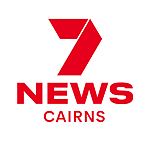State Could Earn Billions as a Medical Tourism Hub
Queensland’s leading role as part of a wave of health exports in technology, product and services has seen the health output of Australia grow five-fold over the last decade based on Australian Bureau of Statistics (ABS) figures.
The exports of the health and pharmaceutical products out of Australia in 2018 were $2.3 billion according to data compiled from ABS data, an increase of 86% on the previous year.
In the development of treatments and targeting of tailored medications for cancer treatments, application of latest technology in cosmetic surgeries and expertise in the recovery time have arguably complemented a perception of Australia as lean, green provider of goods and services.
Australia’s largest provider of cancer care, Brisbane based Icon Group is not only supporting treatment in Australia, but adding a layer of technology to provide plans for patients in China, Vietnam and Singapore within hours of diagnosis.
The Icon Group’s Asian growth push comes at a time where policy makers at state and federal levels place a greater emphasis on developing advanced industries, which complements industries such as health.
Queensland as a destination for a burgeoning medical export industry that straddles both services and products has seen federal and state governments creating bodies aimed at capitalizing on the country’s home-grown expertise.
The establishment of the Queensland Health Export and Investment Advisory Council comes at a time when the proposition to establish the state as medical tourism hub could conceivably generate billions of dollars of inbound tourism over the coming decade.
The value of national tourism exports in 2017-18 is estimated at $37.4 billion according to the ABS, with Tourism Research Australia indicating the numbers of medical tourists has doubled to 20,000 in the last decade.
The training of Australian doctors, the development of specialist knowledge and a culture of discovery has been at the heart of a sector tapping the industry’s expertise and products.
Breakthroughs such as cervical cancer vaccine Gardasil, which helps protect against the nine types of Human Papilloma Virus (HPV) responsible for the majority of HPV-related cancers, was developed by University of Queensland Professor Ian Frazer AC.
Queensland optical scientist Stephen Newman who pioneered multifocal contact lenses would not have conceived what a transformational impact this development has had on the lives of millions around the world.
While medical patents dominate intellectual property applications, small and medium-sized businesses continue to develop new products that are helping to drive record export trade for Queensland.
A common refrain from business broadly is the level of red and increasingly green tape associated with doing business in Australia.
However, such regulations have inadvertently helped boost the sales of vitamins in Asia, powdered milk in China and of course enhanced food sales for consumers looking for healthier options.
Credit: Dan Petrie CCIQ 2019



